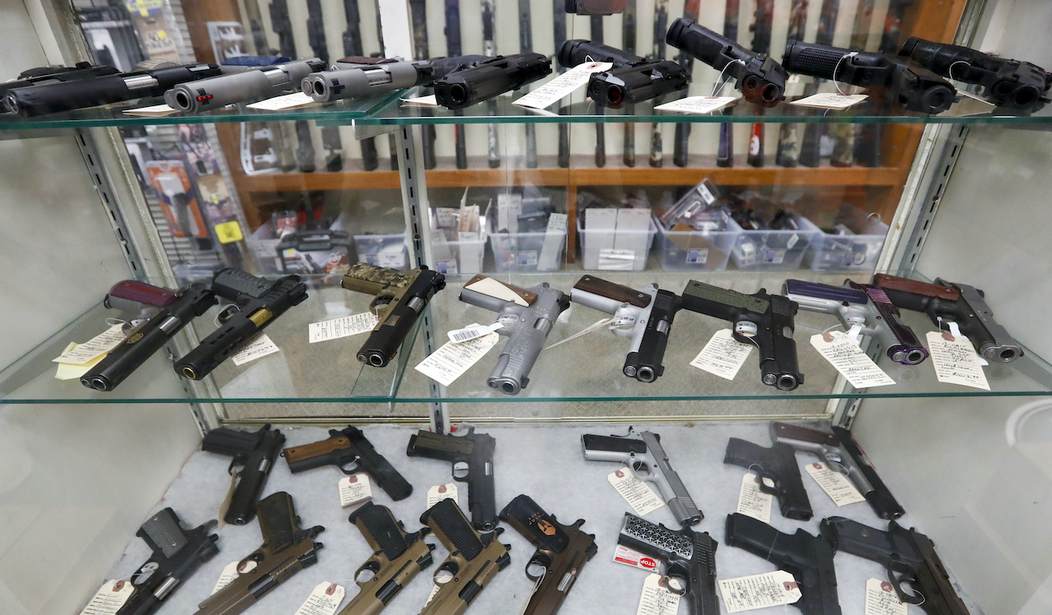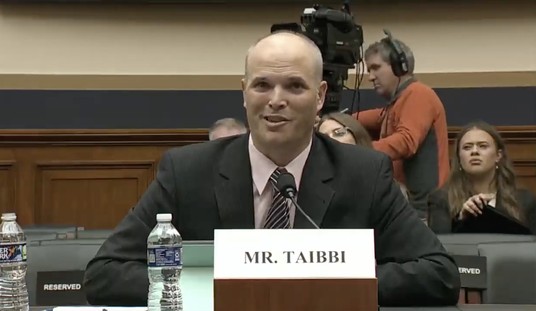A couple weeks ago, the House of Representatives passed H.R. 8, the "Bipartisan Background Checks Act of 2021" and H.R. 1446, the "Enhanced Background Checks Act of 2021."
H.R. 8 passed 227 to 203, with eight Republicans – Reps. Vern Buchanan (FL), Brian Fitzpatrick (PA), Andrew Garbarino (NY), Carlos Gimenez (FL), Adam Kinzinger (IL), Maria Salazar (FL), Chris Smith (NJ) and Fred Upton (MI) – voting in favor of the legislation. Democrat Jared Golden (ME) voted against the bill.
H.R. 1446 passed 219 to 210, with two Republicans – Reps. Brian Fitzpatrick (PA) and Chris Smith (NJ) – voting in favor of the legislation. Democrats Ron Kind (WI) and Jared Golden (ME) voted down their party's bill.
Both bills are commonly referred to as "universal background checks" and are designed to close the so-called "Charleston loophole."
What Is the "Charleston Loophole" That Is Frequently Referenced?
Democrats have repeatedly talked about the "Charleston loophole," something they believe could have prevented the 2015 shooting at Emanuel AME Church in Charleston, South Carolina. Under current law every person who legally purchases a firearm from a dealership or through a dealer at a gun show, must pass a background check with the FBI and through the National Instant Criminal Background Check System (NICS). The sale cannot proceed until the buyer passes the background check. There is a clause built into NICS that allows a Federal Firearm Licensee (FFL) – commonly referred to as a "gun dealer" – to proceed or deny a sale after a three-day delay. It's merely an option and not a requirement.
Recommended
The perpetrator, Dylann Roof, originally attempted to purchase the firearm on April 11, 2015. The FBI issued a delay on his background check because of an arrest for drug possession. Five days later, the FFL completed the transaction and the gun was transferred to him on April 16, 2015.
The tragic shooting took place on June 17, 2015, over two months after the firearm was purchased. But between the transfer date and the shooting, the FBI was conducting an investigation to determine whether or not the sale should have proceeded. Down the road, the FBI concluded the background check should have denied the sale. The Department of Alcohol, Tobacco, Firearms and Alcohol (ATF) was sent in to recover the time. The overarching issue, however, is that Roof was arrested for drug possession. A conviction wasn't in place. NICS is based solely on convictions. Even so, a person deemed an "unlawful user" of a controlled substance generally has to have multiple arrests and evidence of "recent and repetitive" drug use in order to receive a conviction as an "unlawful user." Once the conviction is in place he or she would then be considered a prohibited possessor.
What Does the "Bipartisan Background Checks Act" Actually Do?
Gun control proponents are using H.R. 8 to criminalize Private Party Transfers (PPTs). Under current law, two private parties can transfer firearms to one another without going through an FFL "provided the transferor does not know or have reasonable cause to believe the transferee is prohibited from receiving or possessing firearms under federal law." Some states, however, require citizens to obtain the transfer through an FFL.
There are also restrictions on who a firearm can be transferred to. If a firearm is transferred between two parties in different states, both the buyer and seller have to conduct the transfer through an FFL.
Those who want stricter gun laws claim "universal background checks" would address criminal behavior. They believe that criminals obtain their firearms through PPTs, something even The Washington Post found to be false. A study from the Department of Justice found that more than half of all prisoners that utilized firearms to carry out their crime actually stole the gun. Any kind of background check wouldn't have prevented that since they obtained it illegally.
The only way to create a "universal background check" is to create a firearms registry. It would mean the government would know exactly who owns what guns moving forward, something Second Amendment supporters believe could lead to firearm confiscation.
"H.R. 8 does nothing to address the criminal misuse of firearms, but would put every law-abiding gun owner on a federal gun registry which is currently forbidden under federal law," the National Shooting Sports Foundation's Director of Public Affairs, Mark Olivia, told Townhall. "The firearm industry has grave concerns about our customers being profiled on government watchlists for simply exercising their fundamental Second Amendment right to purchase a firearm."
What Does the "Enhanced Background Checks Act of 2021" Aim to Achieve?
Under H.R. 1446, the three-day waiting period would be extended to 10 days. It also makes private party transfers (PPTs) illegal. A person wanting to loan and/or sell their firearm would have to take their guns to an FFL for a transfer. The FFL would then have to conduct a background check on the buyer.
Extending waiting periods can be detrimental, especially for those who are in imminent danger. If a woman leaves a domestic abuser and wants to purchase a firearm for self-defense, she would have to wait 10 days. That 10 days, however, can actually be longer than that, especially if a background check is "delayed."
Throughout the course of the coronavirus pandemic, and as a result of rioting last summer, a record number of Americans are becoming first-time gun owners. That has resulted in extreme delays with NICS. The delay could mean nothing for a person wanting to take up a shooting sport but it could be detrimental for someone needing it in an emergency self-defense situation.
"H.R. 1446, the so-called “Charleston Loophole” bill ignores that the failure in that tragedy was the FBI not having access to all disqualifying criminal information in the National Instant Criminal Background Check System (NICS)," Oliva explained. "Representative [Jim] Clyburn’s proposal doesn’t fix this, but could delay a law-abiding citizen the right to purchase a firearm for up to a month and require that person prove innocence to the government to exercise their Second Amendment right to purchase a firearm instead of the government proving prohibiting factors. That’s un-American."
The major red flag behind this bill is the requirement for Attorney General Merrick Garland to work with the National Resource Center on Domestic Violence and Firearms, a subset of the Giffords gun control group, which was started by former Congresswoman Gabrielle Giffords and her husband now-Sen. Mark Kelly (D-AZ).
Both of these gun control bills wouldn't have done anything to prevent the tragic shooting in Charleston. All they do is penalize law-abiding gun owners and create a redundancy in current firearms' law.

























Join the conversation as a VIP Member